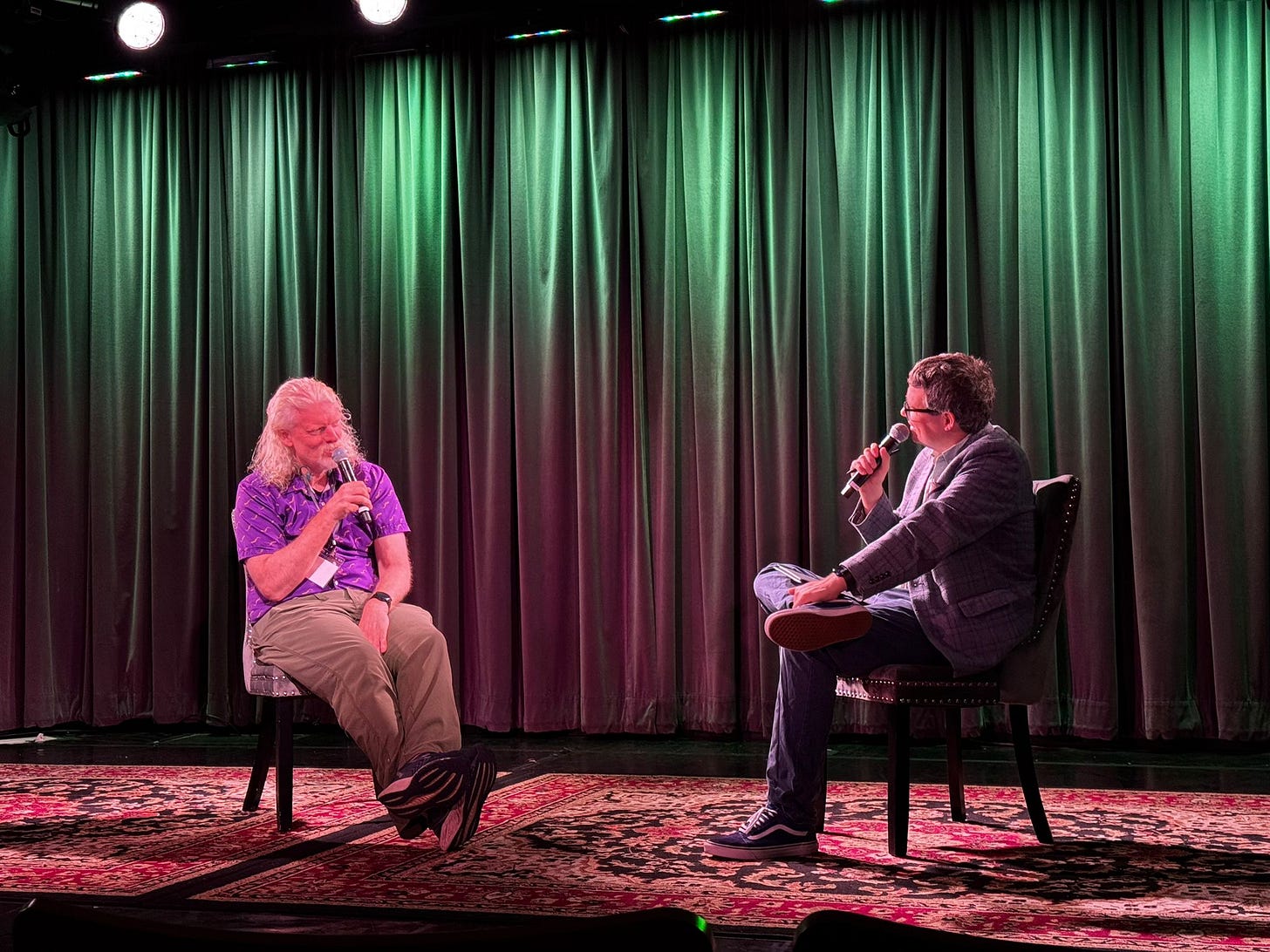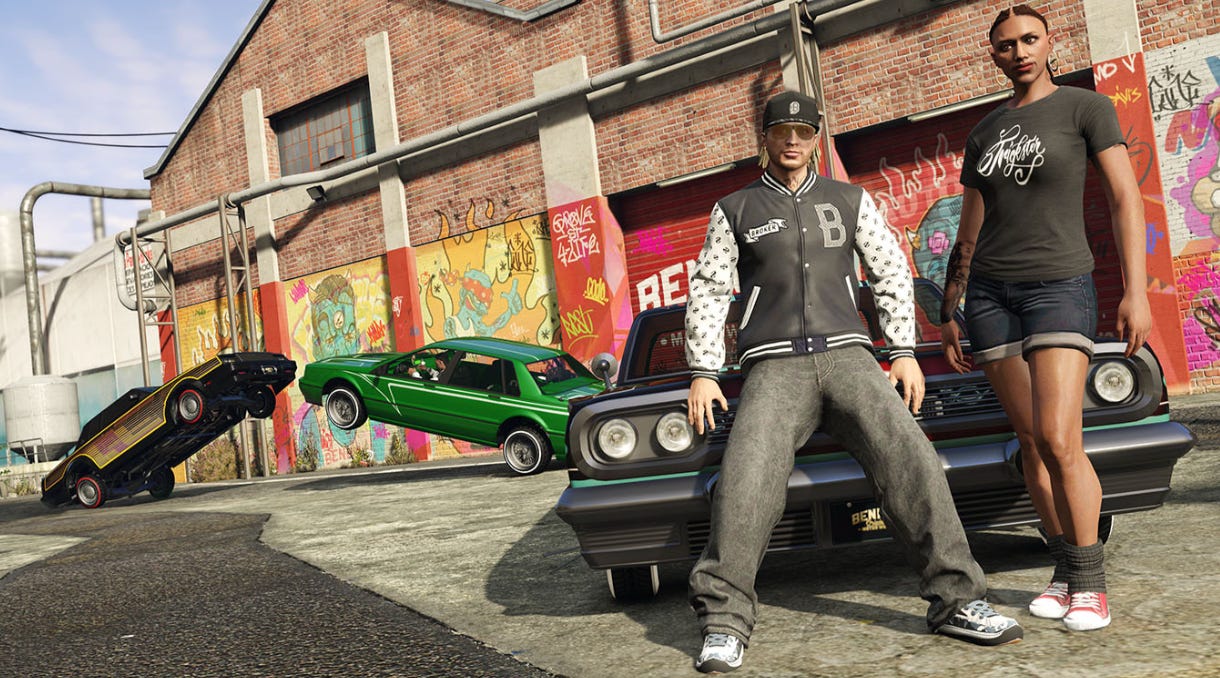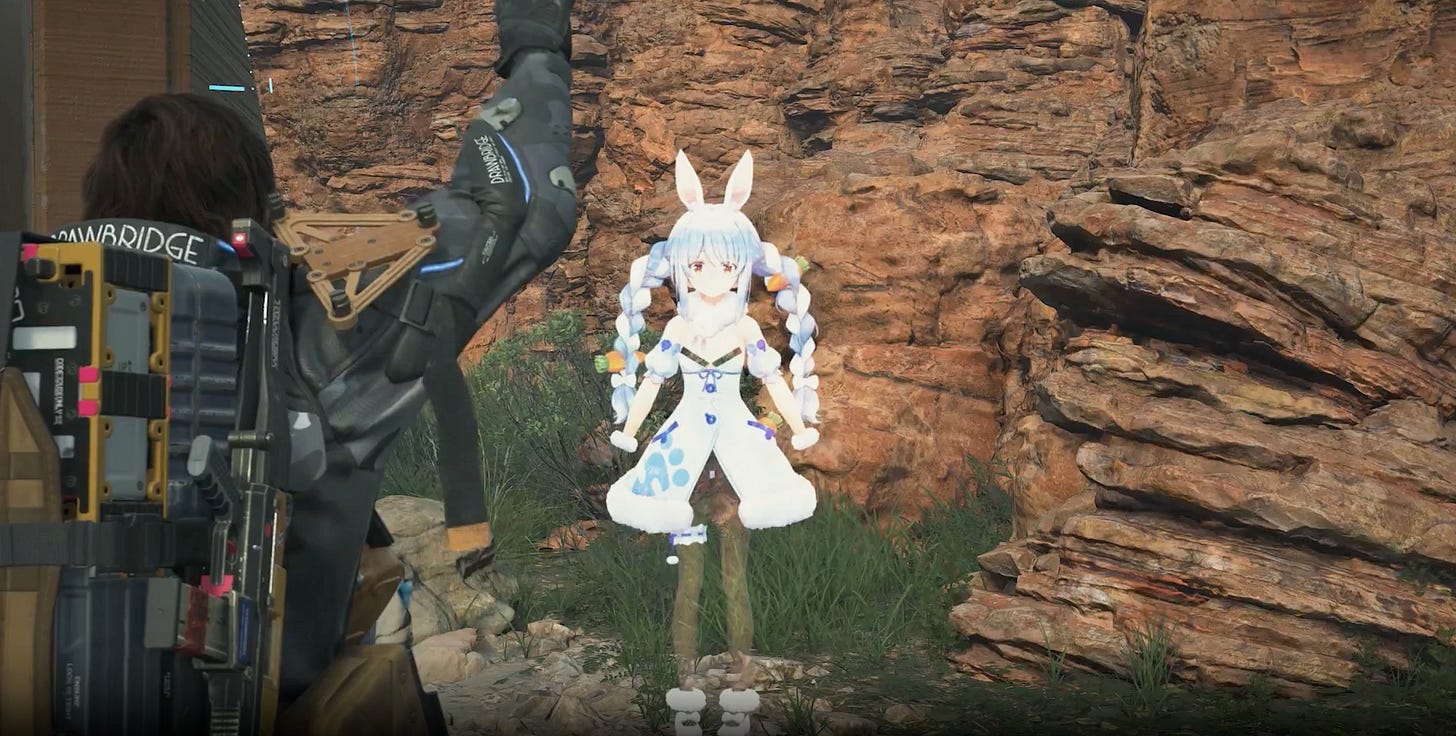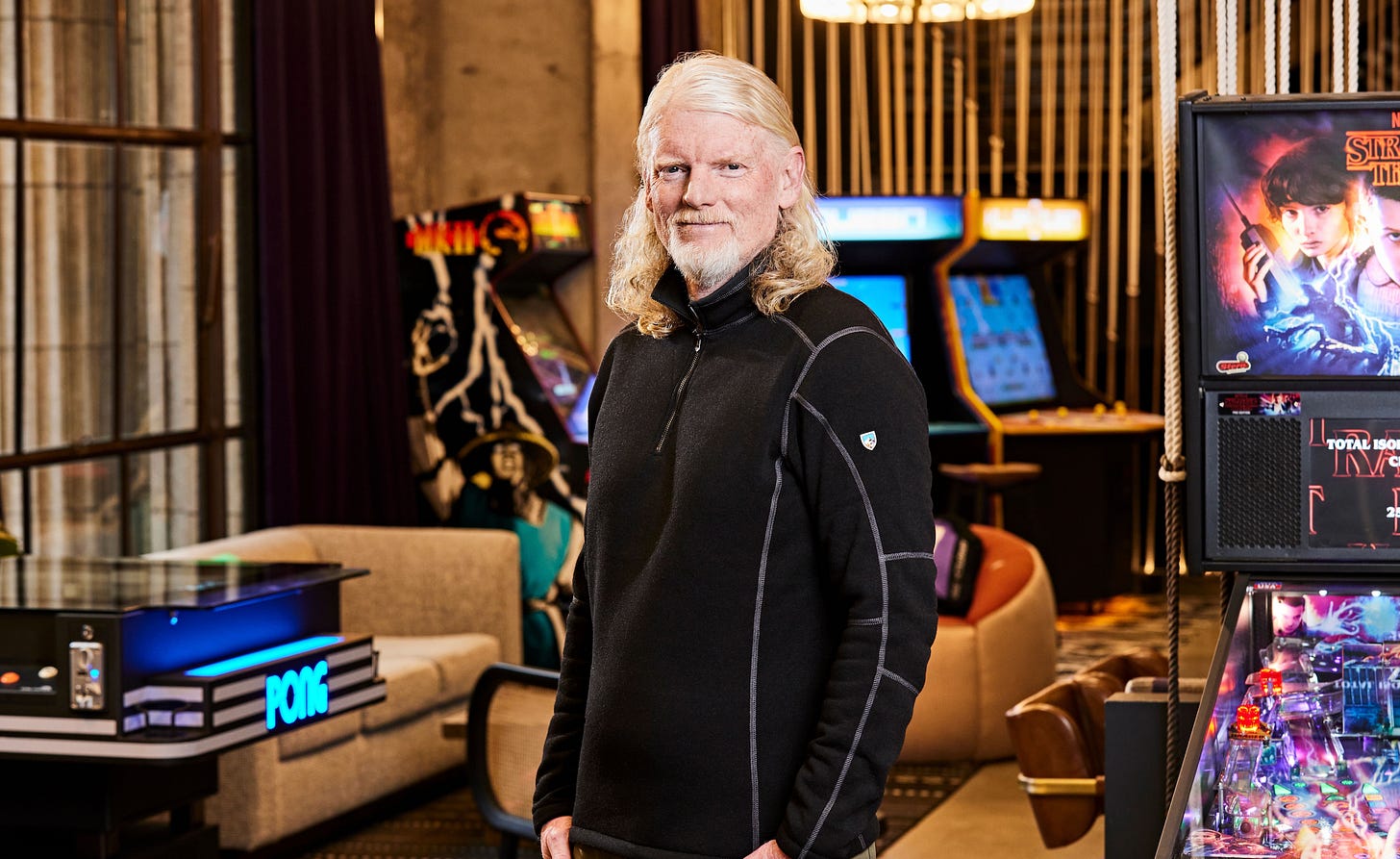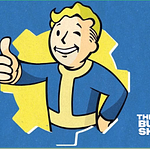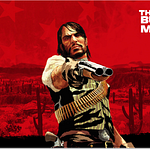Listen now on Apple, Spotify or YouTube
In This Edition
- Twitch on profitability and monetisation
- The rise of VTubers
- Can Twitch fend off TikTok?
- Plus! Bonus episode with Blizzard
Welcome to a new week on The Game Business Show. I hope you had a peaceful weekend.
We have two episodes for you today! The first is with Twitch CEO Dan Clancy, and the second is with Blizzard executives Paiwan Yao and Shannon Williams. Both sessions were recorded as part of The Game Business Live, which took place last week.
Enjoy!
“We are underserving the market in terms of people that would find live-streaming compelling”
When I interview someone, if time allows, I like to ask a few gentle questions to begin with.
It can take a few minutes to warm up when doing a media interview, both for me and the person I’m speaking to, especially if we’ve not spoken before. So it’s good to ease into things if I can.
Yet for some reason, when I sat down with Twitch CEO Dan Clancy on stage at The Game Business Live last week, I didn’t do that. I went straight in and asked if the live-streaming platform is actually making any money yet.
It wasn’t an unwarranted question. Last year, after laying off around a third of the Twitch workforce, Clancy admitted that Twitch “wasn’t profitable at this point” and was living off the support from its parent company Amazon.
Fortunately, Clancy took my question in good faith. Unfortunately, he didn’t really answer it.
“I don’t talk about where we are specifically on that,” he said . “I mentioned it a few years ago, mostly because we were restructuring some of the ways we thought about our overall structure for streamer compensation and we were trying to evolve.
“If you go back in time, we made certain decisions that weren't the right way to think about our business in terms of long-term sustainability.”
He added: “The way I describe it is we feel we're in a very strong place, and I like how our business structure works.”
A large part of Twitch’s strategy is not to obsess too much on protecting its market leadership, but to try and grow the entire live-streaming landscape. Clancy points to the firm’s decision to stop non-sustainable “exclusivity” contracts, which are designed to prevent top streamers from going to rivals.
“That provided some degree of safety, but it hindered expanding live-streaming,” he told us. “If there's a challenge in this space, I think that we are underserving the market in terms of people that would find live-streaming compelling. More people entering in this space helps drive the growth of… I don't want to say market, because I don't think it's really a market. It's really a form of expression. But exposing more viewers to this form of creative expression, and then also attracting more creators.
“It forces Twitch to focus on maintaining this position as the best place for live-streaming. It doesn't use an artificial means to maintain that. That artificial means in any other industry… people would think of it as strange. If it was, ‘you want to post a video on Instagram, that means you can't post a video on TikTok’, they’d look at you like you have plants growing out of your head or something strange. Because that doesn't make any sense. It was one of these things that just came about for lots of reasons early on, but it really doesn't make the right sense for the creator or for the community.”
You can catch my full interview with Clancy in the video podcast above (or listen to it on your podcasting platform of choice). Alternatively, I’ve selected some of the choice moments from the interview below.
Twitch is the anti-TikTok
Live-streaming is bigger than ever, just not in the way Twitch does it. The rise of TikTok and short-form video has transformed social media, and Twitch has been experimenting with short-form content, too.
Yet CEO Dan Clancy isn’t particularly interested in chasing these big video rivals. In fact, Twitch’s strategy is to offer the opposite experience.
“Social media now is kind-of antisocial. You're sitting there by yourself swiping,” he explained.
“It's particularly relevant when you think about games. The foundation of games actually is the social connection that it creates between the players, which is a foundational need that we have as people. And I know many people who don't game don't really appreciate how much gaming is really about social interaction and our need for community.
“Social media now is kind-of antisocial. You're sitting there by yourself swiping”
“Twitch is very much about meeting that need for community. We've built it so that people pull up a chair and stay for a while and, through those shared experiences, eventually form bonds. It is certainly the case that our media world is shifting towards this, you know, swipe, swipe, swipe, swipe. But I actually don't think that meets what is our basic human need, which is connect with other human beings. So our focus is on what I call community-centric live-streaming, which is building that sense of belonging and connection through a shared passion, whether that's a streamer or a game. I feel good about that position even as the world is moving a little more into short rewards. The basic human need is still there, and I think Twitch is what meets that human need.”
Twitch can help video games in the attention economy
It might seem like an odd question, but isn’t Twitch really a rival to video games?
According to Twitch’s own 2024 data, 1.4 billion hours was spent watching GTA V content, 1.19 billion hours was spent on League of Legends, 804 million on Valorant, 539 million on Fortnite and 401 million on Call of Duty.
Clancy disagreed. He says the service is “emphatically not” cannibalizing game time. And actually in the attention economy where everyone is competing for hours, Twitch is a tool to help secure that time.
“It’s what I call the in-between time,” he said. “When you're playing a video game, you're pretty focused. You start the game, you're in the middle of the action, all this stuff is happening. If you get pinged by a friend that wants to chat for a little while, or your partner or mom says to come down for dinner… you’re committed.
“Twitch fills this gap where you can maintain that connection. Gaming is about stories and emotion and connection. But you can't do it all the time. You need some in-between times. It is a very symbiotic situation where when you're not gaming, you can still be engaging with a community that have an affinity for that game. It keeps that game top of mind, even as you're doing other stuff.
“And part of the magic of Twitch… you can start it at any time. You can stop it at any time. There isn't a narrative arc, so if you get distracted for a short period of time, that's okay. You can get distracted and you can come back. If you're in the middle of the game, you can't get distracted and come back. I think they fit perfectly together.”
GTA 5 is the biggest game on Twitch, but GTA 6 won’t be (to begin with)
During our chat, Clancy talked about GTA 5’s huge success on Twitch, and how the game’s role-playing element is what has driven the game’s popularity on the service. This is in contrast to the more esports-orientated games like League of Legends.
“The streamers are playing characters in this virtual world, and then drama ensues and stories develop,” he said.
But that does mean the impact of GTA 6 on the service will likely be delayed. Clancy doesn’t expect the game to arrive on PC at the same time as console, and nor is he anticipating an online mode at launch.
“It is going to be a little strange because whenever it does come out, it's coming out on the console and role play will not be part of the initial launch, and so GTA 5 will still be popular on Twitch, even as everyone's playing GTA 6 for a while,” he explained. “I will find the whole GTA space very interesting as 6 comes out and then as it adds PC play and then role play.”
Expect more VTuber/video game cross-overs
For those that don’t know, VTubers are streamers who use a virtual avatar on the screen.
These virtual avatars are often caricatures of themselves, or entirely different characters they like to portray, and they’re starting to crop up within video games. VTuber Usada Pekora is even making an appearance in the upcoming PS5 game, Death Stranding 2: On the Beach.
And Clancy told us that this area of streaming is growing fast.
“These characters are IP,” he added. “I know from talking to various VTubers that they've been discussing anime shows that might be based upon their character. The VTuber character can go into a game, it can go into a TV show, it can interact with other VTuber characters. This is one reason why I think some streamers will create VTuber versions of themselves.
“Kai Cenet is IP. He's a personality, he's a caricature that he creates. Not unlike Kevin Hart is in some ways IP, but in a traditional movie role. Meryl Streep is a wonderful actress. But her as a person is not IP, because she's always playing someone different. Whereas you think of streamers, they are IP where their character can then exist in different mediums.
“More and more you'll see this merging of these things.”
Are we witnessing the decline of single-game streamers?
The Twitch CEO says that he’s seeing a sharp rise in the number of multi-game streamers, which he sees as an opportunity for video game companies.
“I see a lot more variety streamers,” Dan Clancy said. “If you go back in time, the top streamers were often associated with one game. Ninja and Fortnite, or Nick Mercs with Apex. That was their game, and they played it all the time. As you think of our top streamers now, like Kai, Kai games over 50% of the time, but he played Elden Ring for a bit, he played other games.
“Queso is always moving around playing different games. If you look at Faze Clan, they play a lot of different games. The list goes on. That is good for the video game industry because these entertainers [are exploring] different games.
“A lot of times people talk about streamer burnout, and one of the problems was you’re burned out playing this one game”
“And one of the challenges that happens a lot to streamers was if they played one video game all the time and then they wanted to do something different, they would see their viewership drop. Because some of the affinity was just with the game. So the more they play a variety games, the more they can maintain that community. That’s better for them. A lot of times people talk about streamer burnout, and one of the problems was you’re burned out playing this one game, because you want to explore other games, but you feel like you can't because your viewership will go down.
“Right now, you see a lot more diversity of gameplay.”
Twitch is mindful of a mobile future
Twitch streaming is closely associated with PC users, but that’s beginning to change, Clancy said at The Game Business Live. And the firm is closely watching what the next generation is doing on mobile
“The expectations are evolving in this space as you think of people that had a phone in their hands when they were 13 and how central that device is to their life,” Clancy said. “The core Twitch user is a PC gamer. They have a big monitor in their bedroom. But we see more and more users engaging on a mobile device.
“On a desktop, if they get distracted for a little while, the stream is still going. If you're on your phone and you get distracted and go off and do something else, well now we have to get you back. That forces us to think more about the mobile experience.
“It is important to realise that the world has changed with the advent of the mobile phone in their hand and the people who have grown up with it.”
Check out our video interview on Diablo Immortal
One of the other big sessions at The Game Business Live was with Blizzard’s Paiwan Yao and Shannon Williams on the hit mobile game Diablo Immortal.
During the conversation, Yao and Williams revealed that the majority of Diablo Immortal players are new to Blizzard and to the franchise, which was the key objective when launching the title.
When it was initially announced, the game received a fierce backlash from Diablo fans. And part of changing perception about the game was working with partners, particularly in Western markets.
“Just leaning into advocacy, leaning into our creators and our press, building up those relationships and delivering an experience that is really undeniably Diablo and undeniably a quality experience,” said Williams.
You can check out the full conversation above.
That’s it for today’s edition of The Game Business Show and Newsletter. Join us on Thursday where we will look into third-party performance on Switch 2, those huge Summer Game Fest numbers and the economic outlook for the US.



